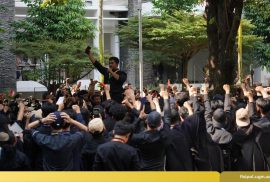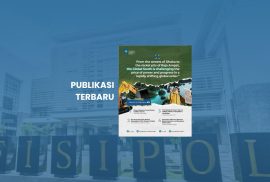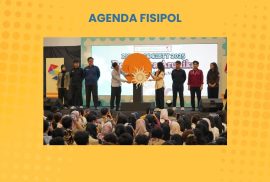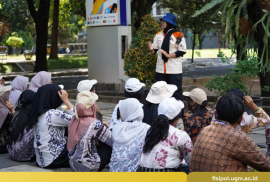Latest article from Megashift FISIPOL UGM
“Energy Transition from the Fields: Agrivoltaics Meets Agroforestry”
By: Fikri Danang Himawan
This article explores the concept of agrivoltaics — the integration of solar panels and agriculture on the same land — and how this system can be combined with agroforestry, a land management practice that integrates trees, food crops, and/or livestock. The combination of these two approaches offers a solution to address the challenges of renewable energy, food sustainability, land-use efficiency, and climate change adaptation.










